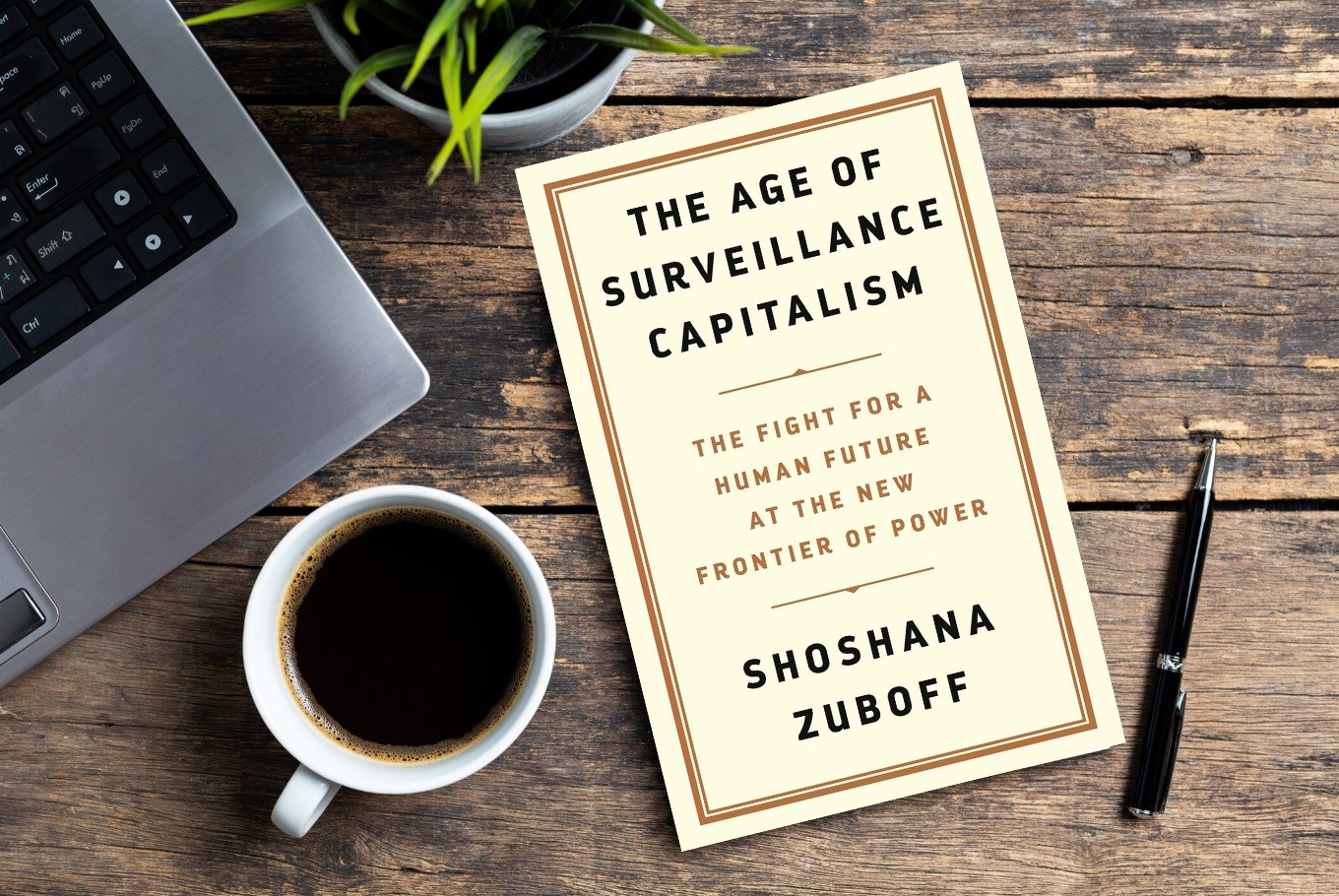Popular Reads
Top Results
Can't find what you're looking for?
View all search resultsPopular Reads
Top Results
Can't find what you're looking for?
View all search resultsA new data reckoning in 'The Age of Surveillance Capitalism'
The Age of Surveillance Capitalism is an ambitious book that deserves a greater audience outside business leaders and policymakers.
Change text size
Gift Premium Articles
to Anyone
T
he 2010s was a decade marked by a fundamental shift in our relationship with technology. We used to envision it as a tool of emancipation: from the Arab Spring and Gezi Park to the Umbrella Movement.
As digital technology advanced, we began to realize that the force behind it isn’t really in the business of promoting social justice, let alone democratizing societies. Technology is not deterministic and we’ve seen it firsthand.
The Cambridge Analytica scandal in 2016 virtually wiped out the “innocence” of social media. We lost our privacy, and our trust in the government (and each other) began to decline. Pop culture was lit with dystopian narratives such as Black Mirror, Westworld and The Handmaid’s Tale series. When Donald Trump was inaugurated in 2017 and his administration talked about “alternative facts”, George Orwell’s 1984 became a best-seller again.
How did we get here?
A Harvard professor, Shoshana Zuboff, seems to have the answer. In a new ground-breaking book, The Age of Surveillance Capitalism (2019), she dissects the business of big tech corporations that profit from commodifying user data. Capitalism has taken a new form, Zuboff argues, by “claiming human experience as free raw material for hidden commercial practices of extraction, prediction, and sales”.
Zuboff calls it “surveillance capitalism”, which centers on mining our digital data as “behavioral surplus” to predict and create personalized profiles for sale. She calls it surplus because these data are beyond what the companies actually need to improve their products and services; it’s our searches, click patterns, cursor movement, typing logs, voices and a million other things that we don’t even know about.
Advertising companies are eager to pay more for this kind of data. According to the Interactive Advertising Bureau, American companies spent US$19 billion in 2018 to acquire and analyze consumer data.
The unprecedented surge of technological innovation in the 21st century has given people the means to express themselves, although poverty and economic inequality are still major global problems. People want access to information and connect with others, but they want them for free.
Over time, this creates a gap and a vast asymmetry of power between users and tech companies.
“Privacy was the price one must pay for the abundant rewards of information, connection and other digital goods when, where, and how you want them,” Zuboff writes.
These companies don’t face much resistance from the users for two reasons. First, people like the service because it makes their lives easier, which creates dependency. Second, ignorance or lack of understanding of the industry’s business model of data extraction. We readily accept the mostly one-sided terms of service agreements (if we even read them), which states that our data can be used for any commercial purposes. In fact, data mining takes place because the users have consented to it. Some are even convinced that they’re not afraid of privacy breaches as they feel they have nothing to hide.
From an individual perspective, data mining may only seem as annoying as the coffee machine ads that follow you across Instagram or persistent promotions of hotel discounts sent to your email. However, this breach has a broader impact from a national and global standpoint.
In the Cambridge Analytica case, social media can be exploited as an engineering platform to modify users’ behavior. The data firm was able to extract behavioral data of 87 million Facebook users to create divisive and targeted political messages and misinformation. Investigations show that it has compromised the United States election and the British referendum on European Union membership in 2016.
Scholars, politicians and regulators around the world have been grappling with this issue for years. Most countries (outside the EU) still don’t have a comprehensive privacy law, although government agencies have started to impose heavy fines on tech companies for violating their privacy policies (Amazon and Google are facing antitrust complaints in many jurisdictions).
Much of the effort is laudable, but whether it can serve as deterrence to those corporations remains unclear. Even if we succeed in claiming our data, we still have no idea to what extent the data is given back and what the data was used for.
What we need as users is algorithmic transparency.
A new reckoning
Surveillance capitalism leaves us unprepared as it hides behind empowering jargon like “open internet” and “connectivity”. We also don’t have a consensus on how to figure it out. Its real practices are buried under advanced artificial intelligence and operated in discreet servers.
Surveillance capitalism is like a hyperobject, to borrow a term coined by philosopher Timothy Morton. It means that although we can’t touch and see it, yet somehow, we know that it exists, that we’re influenced by it and that we probably have to do something about it. But just like climate change, its reach is hard to grasp. To understand hyperobjects, we need a mental upgrade and heightened awareness of its existence.
The Age of Surveillance Capitalism gives us exactly that. It’s an ambitious book, which deserves a greater audience outside business leaders and policymakers. It puts a name to the face and gives us the vocabulary to recognize the challenges we’re facing.
In the dystopian novel 1984, the totalitarian power rejects any forms of freedom and privacy to ensure citizens’ total devotion to the ruler. But unlike Big Brother, big corporations are not trying to impose ideologies or terrorize people.
As opposed to totalitarianism, surveillance capitalism wields what Zuboff calls an “instrumentarian power”, the power to alter, predict, monetize and, ultimately, control our behavior. There’s also a dystopian dimension in that practice.
The book, though, doesn’t aim at providing comprehensive policy recommendations. Its argument is mainly about Western democracies and Silicon Valley. At the same time, a new trajectory is developing in nondemocratic countries like where the citizens are spied on and tracked extensively. In this case, instrumentarian power doesn’t only serve market domination and corporate gains but also — more crucially— acts as the extension of the authoritarian power. This also demands equal scrutiny and debate.
As we start a new decade, it’s time for a new reckoning. The year 2020 should be the turning point for digital capitalism. We’ve seen that seemingly emancipating technology turns us into raw materials for the revenue stream. Can we change that under robust institutional and regulatory frameworks? Or are we bracing for another Facebook election?
If the last 10 years taught us anything, we can’t afford to let our dependency become subordination. (kes)











